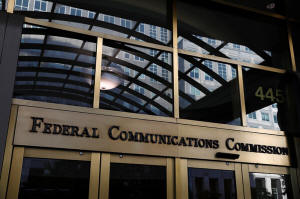|
The declaratory ruling gives state attorneys general new tools
to go after the entities behind the robocalls, FCC Chair Jessica
Rosenworcel said.
"Bad actors are using AI-generated voices in unsolicited
robocalls to extort vulnerable family members, imitate
celebrities, and misinform voters. We’re putting the fraudsters
behind these robocalls on notice," Rosenworcel said.
The FCC noted that state attorneys generals previously could
target the outcome of an unwanted AI-voice-generated robocall,
but the new action makes the act of using AI to generate a voice
in these robocalls itself illegal.
Earlier this week, New Hampshire Attorney General John Formella
said the fake Biden robocall has been traced back to Texas-based
Life Corp. He said a cease-and-desist letter has been sent to
the company, run by Walter Monk, and a criminal investigation is
under way.
"The use of generative AI has brought a fresh threat to voter
suppression schemes and the campaign season with the heightened
believability of fake robocalls," Democratic FCC Commissioner
Geoffrey Starks said.
"Voice cloning," the FCC said, "can convince a called party that
a trusted person, or someone they care about such as a family
member, wants or needs them to take some action that they would
not otherwise take."
The FCC in 2023 finalized a $5.1 million fine levied on
conservative activists for making more than 1,100 illegal
robocalls ahead of the 2020 U.S. election.
The calls sought to discourage voting by telling potential
voters that if they voted by mail, their "personal information
will be part of a public database that will be used by police
departments to track down old warrants and be used by credit
card companies to collect outstanding debts."
(Reporting by David Shepardson; Editing by Leslie Adler)
[© 2024 Thomson Reuters. All rights
reserved.]
Copyright 2022 Reuters. All rights reserved. This material may
not be published, broadcast, rewritten or redistributed.
Thompson Reuters is solely responsible for this content.

|
|




